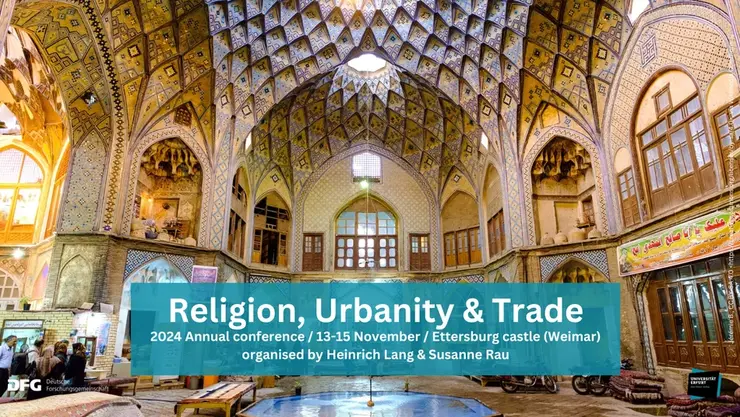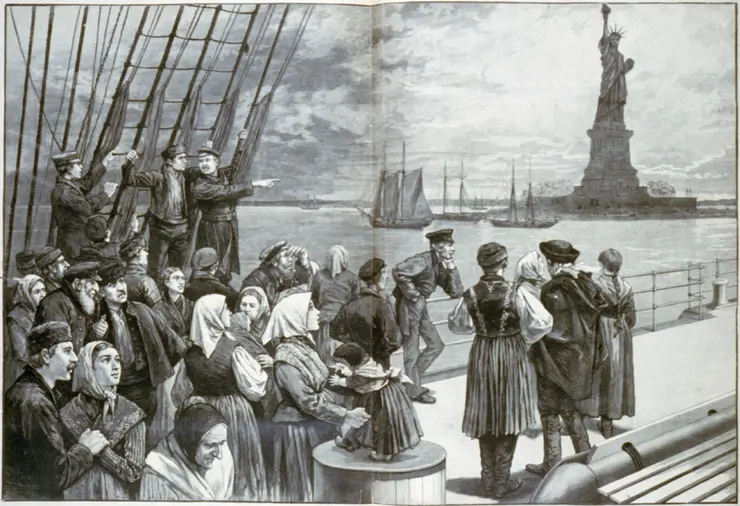
"Mercantilisation"- Conference contributions 2024
In November 2024, the Centre for Advanced Studies in the Humanities and Social Sciences “Religion and Urbanity: Reciprocal Formations”, based at the Max Weber Centre of the University of Erfurt and funded by the German Research Foundation, has held its annual conference on processes of mercantilisation in urban space. The international conference focussed on mercantilisation brought on and shaped by the interaction of religious and urban practices, institutions, and agents. At the core of the conference convened by Heinrich Lang and Susanne Rau laid the triangular relation of economies, religion, and urbanity. This triangular relationship was approached from different disciplinary perspectives and across historical epochs and regions to come to a more complex understanding of cities in global history.
Conveners: Heinrich Lang, Susanne Rau
Audio files editing: Lukas Damm
For the audio files, please change the language to English at the top right
Student project 2020/21

These lecture casts were created by students of Erfurt University who participated in the lecture series “Religion and Urbanity across Time and Space” during the winter term 2020-21. The learning outcomes for StuFu students included also introductory training and instructions on how to use social media, podcasting and video recording services for research purposes.
Both members and fellows of the International Centre for Advanced Studies "Religion and Urbanity: Reciprocal Formations" (Max Weber Centre) presented at this lecture series, which was open to all members of Erfurt University. In addition, the organisers, Elisa Iori and Emiliano Urciuoli, invited distinguished specialists based at German universities.
In assembling the lectures, Iori and Urciuoli, emphasized the substantial, entangled changes to urban life and religion, on the production, adaptation, and dismantling of space, and on the role played by different collective and individual actors. By means of historical reconstruction, the lectures raised the question of comparable current constellations and possible developments in the future.
The lecture series was based on the research group’s understanding that religion and urbanity are world-wide pervasive and long-established strategies of handling and fostering human sociality. In a world where over half of the population lives in cities and religion is far from disappearing or being relegated to the private, the question as to how they have interlocked historically is a critical issue that still needs further and more fine-grained exploration. Planned as a consistent course of 15 lectures, the lecture series presented such connections by zooming in on specific examples of Mediterranean, North-European, North-American, and Asian cities from the rise of urbanism to the present time.
